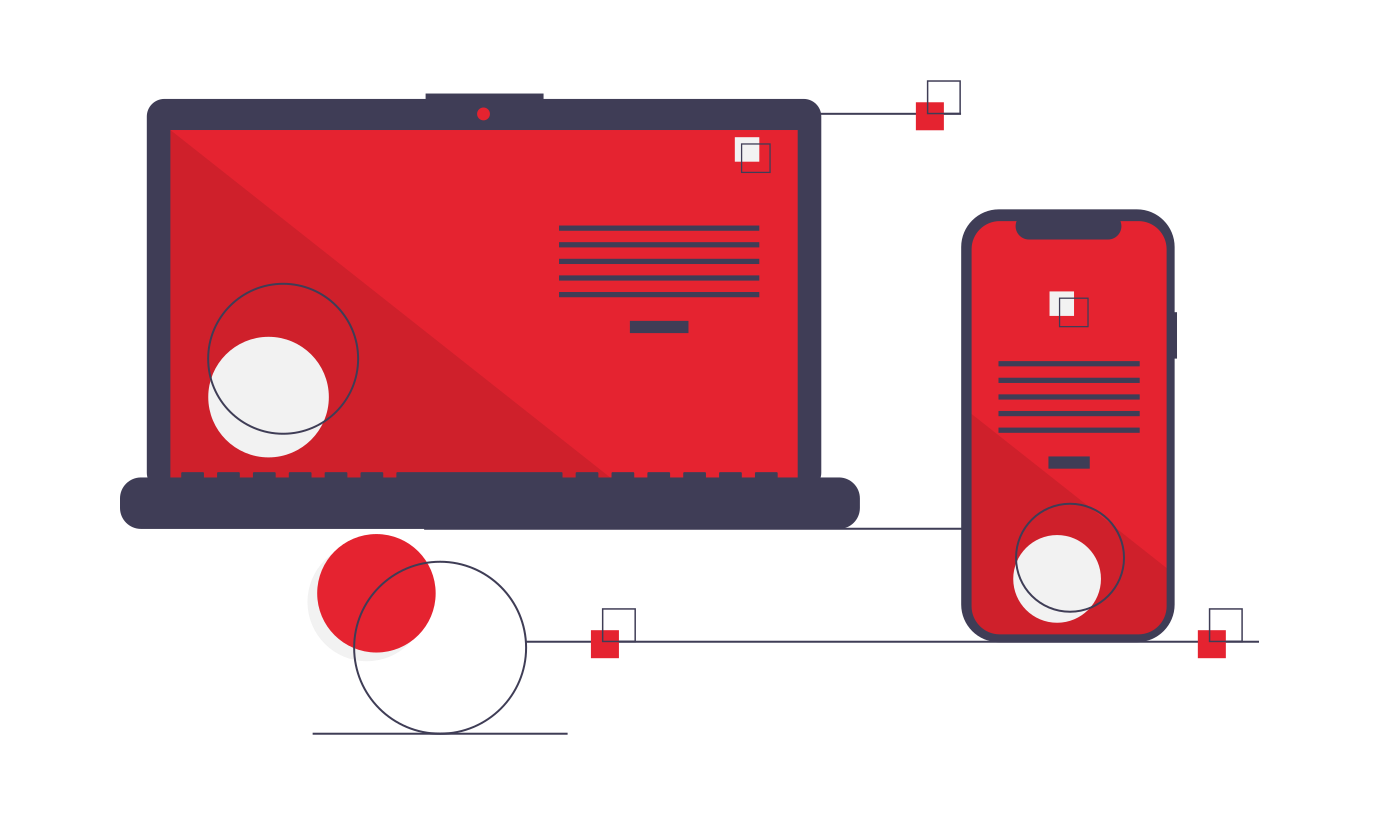

According to the 2020 app stats, around 247 billion apps were downloaded. The number is expected to rise to about 299 billion by 2023. The increase in the number of downloads implies a boost in revenues. These facts refer to the growing competition in the app development industry.
The main goal of every business is to create a product that offers the best features and functionalities on a user-friendly interface. To meet the goal, mobile app development companies must first fight a dilemma of development approaches between Native, Hybrid, and Cross-Platform.
Let us weigh each option for you to decide on the proper programming technique for your product.
Native app development is creating an application exclusively for only one platform. That means the product will have a separate Android and iOS application written in different program languages with different codebases. Obviously, that is the major downside of this approach since it needs more manpower to maintain them separately.

Native mobile app development is the dream scenario for many businesses. These apps are optimized for one platform and exhibit a good show of top-grade performance. As a result, they run smoothly and fast. Their responsiveness is also impressive because they are developed with core programming language and APIs of the platform they are built for. Thanks to this, with the right developers, the user experience will never be an issue.
The main reason why native iOS or Android apps best suit the kind of product you want to create is when your app wants to take advantage of hardware features like bluetooth, GPS, camera, sensors etc...
If your feature set is huge, the app can demand high-performance and complex solutions, that would be a hard thing to optimize and maintain with other solutions in the long run.
You would like to give the best possible experience for your users, so the end result needs to be intuitive from the first screen through the last.
Probably 80-90% of the applications on your mobile are native if not more. After a business succeeds, it tend to orientate itself to native development to give their customers the best possible experience if not from the start. Google Maps, Twitter and Spotify all use a native app for a reason.

Native mobile app development tools can create easy-to-use and high-quality products for a designated platform or device such as Android, or iOS.
Native app development requires coding using the programming language of the target platform. The programming language of iOS is Objective-C/Swift, and that of Android is Java/Kotlin.
Each platform and programming language have guidelines, rules, and regulations you must follow. Otherwise, your product will not be able to pass the test before being open to download on the store. These guidelines are for each aspect, from graphic styles to visual effects, typography, privacy, and others. Here are three of the most popular tools.
Xcode is for developers who would like to build for one of Apple's many devices. Xcode is Apple's integrated development environment for macOS, used to develop software for macOS, iOS, iPadOS, watchOS, and tvOS.
The equivalent of Xcode for Android development is Android Studio by Google.
Hybrid mobile development is the process of creating an application that involves native programming as well as HTML5 mobile app development programming. As the name predicts, it is a blend of native and web programming.
Web technologies such as CSS, HTML, and JavaScript create the core structure of the app, which is then given the form of a native application using different plugins and tools. These apps are accessible on the mobile operating systems, essentially running in a hidden web browser.

Hybrid apps are scalable to other platforms because they involve re-using the same code. You can easily launch a hybrid Android app on iOS.
It takes less time, as well as less financial investment to develop, compared to native app development. A company can reach a greater market with a single app running on many platforms.
You should choose hybrid app development for your product if you aim to later introduce the app on another platform. It is a time-saving and less expensive method of creating apps that users can access on Android and iOS operating systems. A good solution for early-stage startups is to get feedback from a well-constructed MVP application with a tight feature scope.

A verseny a hybrid alkalmazások terén is növekszik, valamint egyre több fejlesztői keretrendszer jelenik meg a piacon. A verseny a hybrid alkalmazások terén is növekszik, valamint egyre több fejlesztői keretrendszer jelenik meg a piacon. A két leggyakrabban használt hybrid fejlesztői eszköz:
The tool with ideal native modules offers the ability to convert source code into native elements. The popularity of this technology is so high, that even the beginner programmers use it without native app development knowledge.
A framework and/or software development kit (SDK) based on HTML5.
Cross-Platform app development is a programming approach to creating an app for all mobile operating systems and platforms, including Android, iOS. They have a native look for each platform because the native code of each target platform is built-in and the developers only need to create code for business features, so result is a highly optimized product for Android and iOS.
Those who are not familiar with these approaches commonly mix up Cross-platform and Hybrid apps. The only similarity between the two is the shareable codebase.

Cross-Platform mobile app development involves using one code base that will work for all platforms. Since the code base is shared, there is no concept of repeating the tasks or having a slow progression rate. Moreover, it allows you to fix bugs on all platforms in one go.
Cross-Platform mobile app development is less expensive because its framework involves sharing technical resources. Plus, the reach of these apps is double.
If your company needs an application accessible to users despite their operating system, choose Cross-Platform app development because these apps know no boundaries when reaching users. But please know that the end experience will not be as native as the users might expect. The best use case would be in any industry, an in-house app for professional use with somewhat a limited budget.
A good example of this is Slack. It is fast, stable, easy to use, and accessible on all platforms. Another example of this programming approach is Skype. The ease of use and quality this product offers to video chat users was unique for quite some years. The success of these two products demonstrates the importance of cross-platform app development.
The most commonly used tools in cross-platform app development include:

The cross-platform vs native vs hybrid app debate is quite common in the programming world, but each has its pros and cons.
Cross-Platform and Hybrid app development involve working on one code base and re-using it for all operating systems. On the other hand, native apps are compatible with one platform: Android or iOS. Thus, developing a native app takes not only more time, but also more financial investment.
Businesses with a high budget can opt for native apps because the final product is responsive, fast, and high-quality. The quality of the other two apps is also high, but native outperforms them. Also, when customization and UX are important the clear winner is native every single time.
The final word on the cross-platform vs native vs hybrid app belongs to the mobile app development companies you hire. Broduction is the best company of app builders that will deliver you top-grade results.
It does not matter if the mobile app development approach is more expensive or more complicated when it is the best choice for your business. Indeed, it is the nature of your business and your target audience that you need an app that determines the proper programming technique.
However, if you are unclear about your business vision, mission, and the need for an app, you cannot develop a successful product even if you put your blood and sweat into it.
Let the expert team at trustworthy mobile app development companies help you if you cannot polish your business objectives and app development.

Broduction
Do you have a project that needs a new development team? We are transforming ideas into products since 2016 at Broduction. Contact us if you have any questions or want to transition your project to a new vendor!
Let's talk